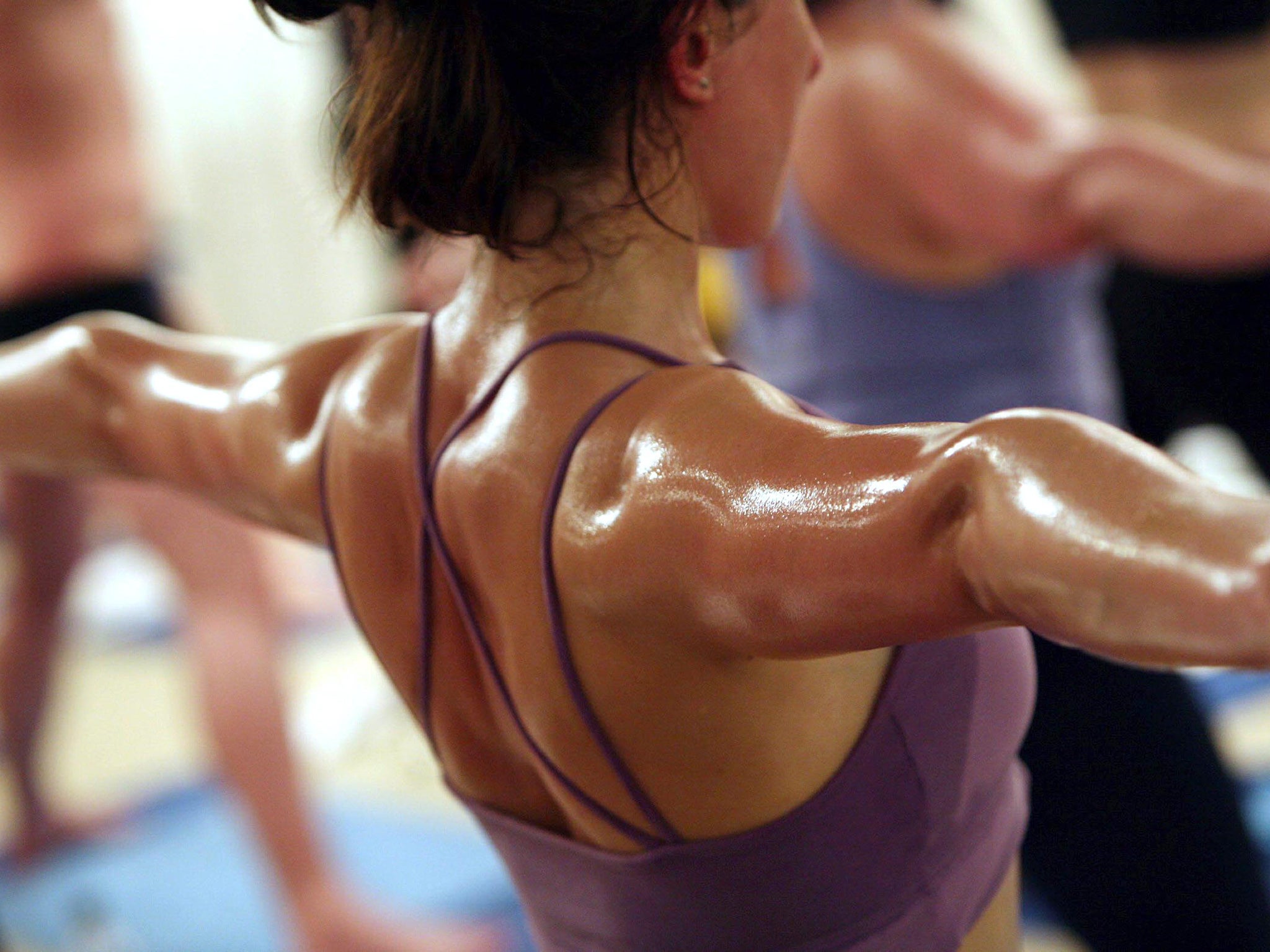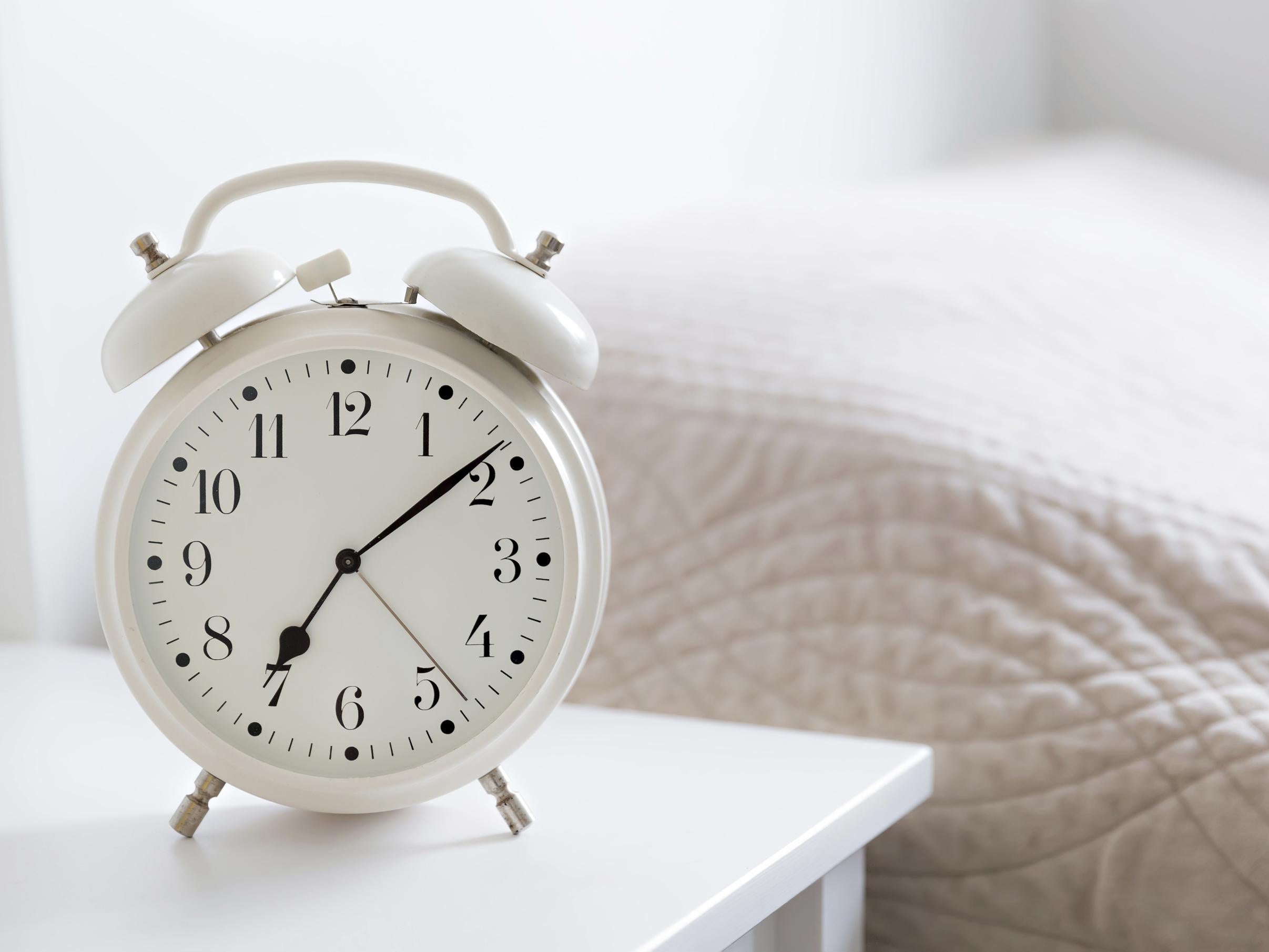5-minute morning routines that can make your whole day better
You don't have to add three leisurely hours to your morning routine to be happy or productive

Your support helps us to tell the story
From reproductive rights to climate change to Big Tech, The Independent is on the ground when the story is developing. Whether it's investigating the financials of Elon Musk's pro-Trump PAC or producing our latest documentary, 'The A Word', which shines a light on the American women fighting for reproductive rights, we know how important it is to parse out the facts from the messaging.
At such a critical moment in US history, we need reporters on the ground. Your donation allows us to keep sending journalists to speak to both sides of the story.
The Independent is trusted by Americans across the entire political spectrum. And unlike many other quality news outlets, we choose not to lock Americans out of our reporting and analysis with paywalls. We believe quality journalism should be available to everyone, paid for by those who can afford it.
Your support makes all the difference.If you feel a twinge of jealousy each time you read about another successful person who wakes up at 4 a.m. to meditate, jog, read a novel, and eat two grapefruits, take heart.
You don't have to add three leisurely hours to your morning routine to be happy or productive.
In fact, plenty of the habits that can help you start your day take five minutes or less.
Several of those habits are listed under the Quora thread, “What can I do in 5 minutes in the morning to make my whole day better?”
Below, find some of the simplest routines to tackle your day feeling refreshed and ready to tackle whatever challenges come your way.
1. Write down three things you're grateful for

Quora user Nela Canovic suggests writing down three things you're grateful for every morning.
“Think about what you already have in your life,” she writes. “Don't focus only on material things (such as a car or computer), but rather think in more simple or basic terms.” For example, you might express gratitude for friends, family, or your education.
This strategy is similar to the “three good things” exercise recommended by Martin Seligman, a professor of psychology at the University of Pennsylvania and one of the founders of the positive psychology movement.
Seligman and colleagues advise people to take time each night to write down three positive developments that happened that day, along with an explanation for why they did. You can, however, easily adapt this exercise for the morning and think about three things you're grateful for in general.
2. Think about what would make today great
Canovic recommends another, more prospective exercise: “Write one sentence about something that, if it were to happen, would make you feel like today will be a positive, productive, unique day.”
It can be something as simple as going to bed before midnight or spending an hour doing something you love, she says.
Once you figure out exactly what would make you feel happy and accomplished, you can go about making it happen.
3. Meditate

Science suggests meditation has myriad benefits, from helping you deal with stress and negative emotions, to boosting your memory, to strengthening your immune system.
But meditation doesn't necessarily mean sitting in silence for hours on end. As Ariel Banayan points out, “sitting for five minutes to detach from the thoughts of your mind will have a profound impact on your day.”
If you're unsure how to get started, the UCLA Mindful Awareness Research Center offers some free guided meditations, some of them five minutes or shorter.
4. Exercise

Minh Killy Le recommends five minutes of exercise right after you wake up. His favorite is planking, which is similar to a push-up.
Research suggests that working out before you eat breakfast can help you lose weight and boost your energy levels — though the workouts in these studies lasted about an hour, or until the participants had burned 400 calories.
Regardless of how long you choose to exercise, be sure to warm up beforehand, since your muscles will likely be stiff from sleep.
5. Make your bed

Raviteja Chirala says he loves coming home to a neatly made bed.
Meanwhile, journalist Charles Duhigg writes in his book “The Power of Habit” that making your bed can help increase your productivity for the rest of the day. That's because it's a “keystone habit” that can “spark chain reactions that help other good habits take hold.”
6. Prioritize

Chirala also suggests writing a list of things you want to accomplish that day. That way, you'll have a clear set of priorities to guide your work for the next few hours.
Psychologist Travis Bradberry says this kind of careful planning boosts your chances of achieving your goals. He personally likes to set his daily goals after his mindfulness practice.
7. Visualize the rest of the day
Harrison Thorne recommends a morning visualization routine: “Simply picture your short- and long-term goals, and affirm your abilities to complete these goals.”
In his second book, “Smarter Faster Better,” Duhigg outlines a similar technique: Tell yourself stories about how the day will unfold.
Duhigg writes about researchers at MIT who studied the most productive people at a recruiting firm and found that they were “obsessive, in fact, about trying to explain the world to themselves and their colleagues as they went about their days.” For example, they might ask colleagues to help them imagine how a future conversation or a pitch meeting might go, so that they were more prepared when the events actually happened.
He recommends making a habit of this strategy by spending your morning commute telling yourself a detailed story about the rest of the day.
Read more:
• Analysts question the way Apple describes its data
• Mike Ashley has a plan to save BHS with no job losses
• Investors think central banks have lost their power
Read the original article on Business Insider UK. © 2016. Follow Business Insider UK on Twitter.
Join our commenting forum
Join thought-provoking conversations, follow other Independent readers and see their replies
Comments